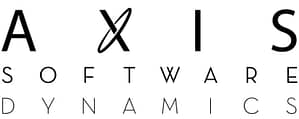Writing clean and maintainable code is an essential aspect of software development. It helps ensure that your code is readable, understandable, and easy to modify and maintain over time. In this blog post, we will explore some of the best practices for writing clean and maintainable code.
Keep It Simple and Concise
One of the most important aspects of writing clean and maintainable code is to keep it simple and concise. Use meaningful names for variables, functions, and classes, and keep the code as short and straightforward as possible. This will help make the code easier to understand and modify in the future.
Use Consistent and Clear Formatting
Consistent formatting makes it easier to read and understand code. Use consistent indentation, spacing, and line breaks. Also, make sure to use clear and descriptive comments to explain the code’s purpose and functionality.
Follow a Coding Standard or Style Guide
A coding standard or style guide helps maintain consistency across the codebase. It defines the rules and guidelines for writing code, such as naming conventions, formatting, and best practices. Following a coding standard can make it easier for developers to understand and modify each other’s code.
Use Meaningful Variable and Function Names
Using meaningful variable and function names helps make the code more readable and understandable. Use descriptive and self-explanatory names that accurately represent the variable or function’s purpose and functionality.
Avoid Magic Numbers and Hard-Coded Values
Magic numbers and hard-coded values can make the code harder to maintain and modify. Instead, use constants or variables to represent these values. This makes it easier to change the value in one place and have it reflected throughout the code.
Write Modular and Reusable Code
Modular and reusable code is easier to maintain and modify over time. Use functions and classes to encapsulate functionality and promote code reuse. This makes it easier to modify the code without affecting other parts of the application.
Test the Code Regularly
Regular testing helps catch bugs and ensure the code is working as expected. Write unit tests and integration tests to ensure that the code is functioning correctly and meets the requirements. Testing also helps ensure that the code remains maintainable over time.
In conclusion, writing clean and maintainable code is essential for developing software that is easy to understand, modify, and maintain over time. By following the best practices outlined above, you can create high-quality code that is readable, understandable, and easy to modify.
Contact us today for your custom software development needs!






